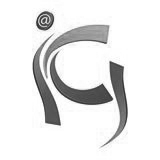
To describe a standard operating procedure (SOP) for cooling an equipment.
1.0 PURPOSE:
To describe a standard operating procedure (SOP) for cooling an equipment.
(a) To room temperature from hot condition.
(b) To below 25 degree C from room temperature.
(c) To below 15 degree C from RT.
(d) To 0 degree C from hot condition.
2.0 SCOPE:
The SOP describes in detail the method of cooling an equipment.
3.0 RESPONSIBILITY:
The responsibility of cooling an equipment as per the SOP lies with the staff of the rank not lower than operator of the production department.
The responsibility of preparing, reviewing and approving the SOP lies with the Officer (Production), Head of Production and Head of QAD respectively.
4.0 METHOD:
4.1 TO ROOM TEMPERATURE FROM HOT CONDITION.
4. 1.1 Check temperature of equipment.
4. 1.2 Stop supply of steam and drain the steam condensate from jacket.
4.1.3 Open water inlet valve and keep the jacket outlet line hose pipe in service manifold drainage.
4.1.4 Allow the water to be filled in the jacket till water comes out from jacket outlet line hose pipe.
4.1.5 Close the inlet valve and connect the hose pipe to water outlet valve. Open water outlet and inlet valves.
4.1.6 Keep the circulation of water in the jacket continuously.
4.1.7 Check the temperature at regular intervals with thermometer.
4.1.8 When the temperature is reach 2 - 3° C. below the desired value, stop water circulation.
4.1.9 Allow the reactor at this stage to get the desired temperature.
4.2 TO BELOW 25 DEGREE C FROM ROOM TEMPERATURE.
4.2.1 Check whether jacket is empty and close jacket drain valve.
4.2.2 Open jacket outlet pipe and keep in service manifold drainage. Connect inlet hose pipe into chilled water inlet valve.
4.2.3 Open chilled water inlet valve and allow water to be filled in the jacket.
4.2.4 After water came out from jacket outlet line hose pipe, close the chilled water inlet valve. Connect the outlet hose pipe to chilled water outlet valve. Open the chilled water outlet and inlet valves to allow the chilled water to circulate in the jacket.
4.2.5 Close the inlet and outlet valves, when the temperature reaches the upper limit in the range, so that temperature reaches lower limit.
4.2.6 Check the temperature at regular intervals with thermometer.
4.2.7 If the temperature reaches the upper limit in the range, open the inlet and outlet valves of chilled water, till the temperature reaches 2° C. less than upper limit close the chilled water valves.
4.3 MAINTENANCE BELOW 15 DEGREE C.
4.3.1 Remove chilled water from jacket drain valve.
4.3.2 Close the jacket drain valve.
4.3.3 Open jacket outlet pipe and keep in service manifold drainage. Connect inlet hose pipe into brine inlet valve.
4.3.4 Open brine inlet valve and allow brine to be filled in the jacket.
4.3.5 After brine came out from jacket outlet line hose pipe, close the brine inlet valve. Connect the outlet hose pipe to brine outlet valve. Open the brine outlet and inlet valves to allow the brine to circulate in the jacket.
4.3.6 Close the inlet and outlet valves, when the temperature reaches the upper limit in the range, so that temperature reaches lower limit.
4.3.7 Check the temperature of regular intervals with thermometer.
4.3.8 If the temperature reaches the upper limit in the range, open the inlet and outlet valves of brine, till the temperature reaches 2° C. less than upper limit close the brine valves.
4.4 To 0 degree C from hot condition:
4.4.1 Repeat 4.1.1 to 4.1.6.
4.4.2 Stop the water circulation in jacket at room temperature, empty the jacket by opening jacket drain valve.
4.4.3 Repeat 4.2.2 to 4.2.4.
4.4.4 Stop the chilled water circulation and repeat 4.4.2.
4.4.5 Repeat 4.3.2 to 4.3.5.
4.4.6 Close the inlet and outlet of brine valves when the temperature reaches 3° C.
5.0 RECORDING:
Cooling an equipment operation will be recorded by the operator/supervisor in the temperature record attached to the batch manufacturing sheet.
Production, operating procedure, equipment